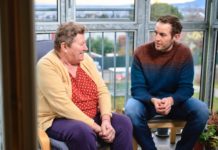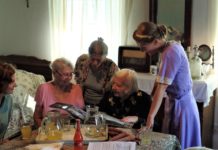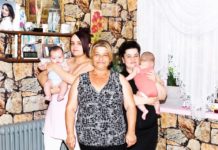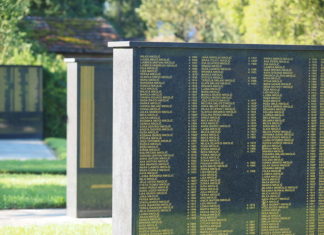I was born into a Rroma family in a small village in Bulgaria. I am an only child, I have no siblings. Besides, I am the only one in the family who has graduated from high school and is attending university, were the introduction words to our interview with Maria Atanasova, winner of the Young European of the Year 2020 award.
Every year, the Schwarzkopf Foundation Young Europe from Germany announces nominations for young Europeans who have distinguished themselves in an exemplary manner concerning their honorary commitment and dedication in the support of international understanding and the integration of Europe. The nominees should prove that they have taken certain initiatives, feel responsible and are ready to meet the challenges of creating coexistence among the differences in Europe.
I am surprised, of course, because all the candidates are inspiring and do an amazing job. Also, such recognition proves that someone appreciates my work, work within the Rroma community and that all the effort that the Rroma youth put into the whole community has been recognised.
Although her family is a great support, when it comes to education, she had to look elsewhere for information and advice related to studying. For the first time in high school, she gets acquainted with the work of a Rroma youth organisation. Now, years after knocking on the door of the Areté Youth Foundation, Maria is volunteering in the role of mentor helping those who want to continue their education at one of the universities. Last year, through the “Peer-to-peer” program, she started working with a girl helping her to prepare for exams. For her peer-to-peer work, she was awarded the title of mentor of the year.
My perception of mentorship is not only in helping young Rroma to continue their education. I believe that a mentor should encourage development and progress in any area in which the person is interested in. By talking to them and guided by my personal example, I always emphasise that only by stepping out of their comfort zone they can grow up and feel safe to achieve whatever they want.
In addition to working as a mentor, Atanasova coordinates volunteers at The Social Teahouse, a social enterprise working with children and young people deprived of parental care. Besides, she is a fourth-year Midwife Studies student and has been working at the hospital since the beginning of her studies.
Unfortunately, the hospital is yet another place in Bulgarian society where people are not treated equally and do not have the same right to health care. Every time I see discriminatory behaviour I try to react, but often such behaviour comes from the doctors or professors themselves. Delivery rooms and nurseries are actually not segregated, but there is always a “Rroma room” in any maternity ward. Rromani women are not placed with other mothers, only if there are not enough beds in that “special room”.
As expected, the hospital’s official position is that such discriminatory segregation does not exist, but it is certain that discrimination against Bulgarian Rroma begins at birth. Rroma rooms, as they are called, are used exclusively used by Rroma patients, who sometimes do not even have a chance to see the part of the hospital that is exclusively designated for Bulgarian pregnant women and mothers.
We have Rroma youth who are part of the Rromani movement, but we do not have a large number of young people combating antiziganism, especially when it comes to social media campaigns. We lack strong political action and staff capable of responding to xenophobia. I would like us to be politically represented one day.
Saint George Feast or Ederlezi is the biggest Rromani holiday in Bulgaria. Earlier, when the Rroma travelled the country, they would spend long and cold winters in one place, so with the change of seasons and the arrival of spring, they would celebrate a new opportunity to travel. Some Rroma, who mostly live in Bulgarian villages, engage in seasonal agricultural work and collecting wild plants and mushrooms. Some others have revived old traditional crafts, sometimes in a modified version such as making straw mats and baskets, various types of blacksmithing and tinsmithing services and the like. Some of these crafts are associated with the nomadic way of life, and Atanasova points out that tradition is extremely important in Bulgaria.
One of my earliest childhood memories is Saint George Feast celebration which is an important day for my community. Then we all gather in the village on the meadow and prepare a lamb dish, a specialty of the day. We try to keep the tradition alive and celebrate in the way our grandparents did – in the meadow or in the woods. Some even set up tents. Although this year will be different since we have to stay at home because of the virus, the tradition is still alive and present in some Rromani communities in Bulgaria.
When it comes to underage marriages, Atanasova does not consider them to be part of a tradition, but a reflection and consequence of the economic and social circumstances present in Rroma communities. Non-segregated schools and cooperation between institutions and the civil sector, she says, can help solve the problem.
However, in recent years, Rroma girls have been marrying somewhat later than previous generations. I notice this is changing because they are more aware that early marriages interrupt their schooling, keep them unemployed, building their lives around their husbands. I am inspired by all young people, especially these girls, who, despite difficult life situations, find a way for their professional self-realisation. I hope my example could be their inspiration. Freedom is truly expressed in the possibility of choice that is sometimes so difficult for Rroma girls to grasp.












